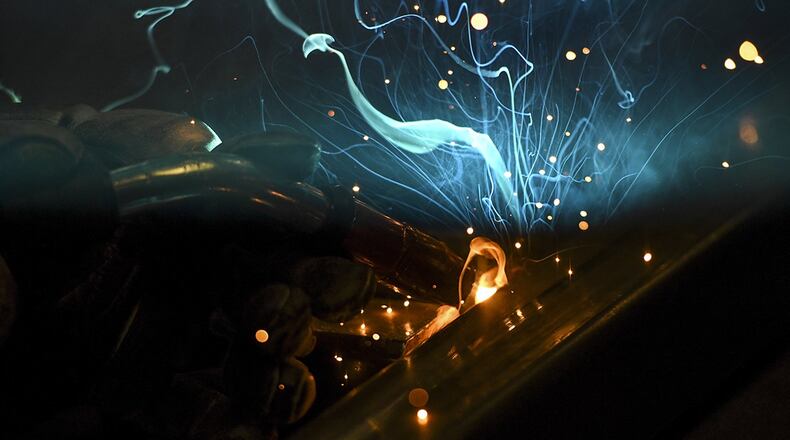“We are the subject matter experts for the metals technology career field, which involves additive manufacturing, machining, welding, heat treating, parts repair and fabrication,” said Che Dacalio, an engineering technician for the office. “We do site visits throughout the United States, visiting MT [metal technology] shops, assessing their work, capabilities, equipment and providing training as needed.”
There are approximately 190 MT shops located across all major commands, and each shop is equipped with modern manufacturing equipment set up to augment supply system gaps.
“The infrastructure of MT Shops makes agile manufacturing a reality for the Air Force,” added Dacalio. “We are trying to help our SPOs [system program offices] recognize the organic manufacturing potential that has long been established within the Air Force. MT shops offer rapid response manufacturing and repair solutions for unique Air Force part production and stock exhaustion problems. We seek to maximize MT shop utilization to sustain continuous Air Force flight and improve mission generation by supplying parts on demand, anytime, from almost any Air Force installation, and at a fraction of the costs when compared to similar contracted efforts.”
When a flight-critical spinner backing plate from a U.S. Air Force Academy T-51 trainer aircraft cracked, there wasn’t a replacement available since the part was obsolete.
As with many supply challenges, production-level drawings did not exist. Thus, any future part produced required Federal Aviation Administration, coordination and approval prior to flight authorization.
The office worked with the USAFA T-51 chief engineer and the Advanced Technology and Training Center of Middle Georgia, to reverse engineer, 3D model the original part and create FAA-approved manufacturing drawings. Dacalio then coordinated with Luke Air Force Base’s MT shop to locally manufacture 15 new spinner backing plates within six and a half weeks.
The spinner backing plate was eventually installed on the T-51.
The MTO team also support mission-critical parts within the Air Force armaments sustainment and support equipment and vehicles divisions, as well as tooling/fixtures and non-critical weapon system components/parts.
“A number of F-16 M61 cannons had experienced cracked front access housing,” said Dacalio. “The estimate to replace the parts was well over a year. We worked with a MT shop at Mountain Home Air Force Base, and they were able to locally manufacture the part using a computer numerical control and send back the parts within 60 days.”
“Our sole purpose in the Metals Technology Office is to increase awareness and performance of the aircraft metals technology, or metals tech, career field,” said Master Sgt. Bemis, superintendent of the MTO. “We support the unique capability, unmatched by any other field or intermediate maintenance level base entity that metals tech can provide. We are steering the future of manufacturing methods in maintenance through the implementation of technologies, such as additive manufacturing [3D printing] while not losing focus on the benefits and requirements for legacy machinery, such as mills and lathes.”
For more information contact the MTO team at: AFLCMC.EZPT-MTO.MetalsOffice@us.af.mil.
About the Author
